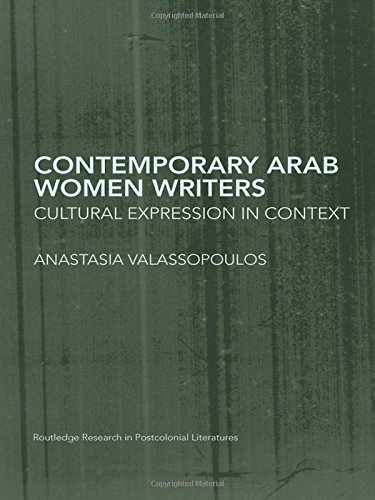

Most ebook files are in PDF format, so you can easily read them using various software such as Foxit Reader or directly on the Google Chrome browser.
Some ebook files are released by publishers in other formats such as .awz, .mobi, .epub, .fb2, etc. You may need to install specific software to read these formats on mobile/PC, such as Calibre.
Please read the tutorial at this link: https://ebookbell.com/faq
We offer FREE conversion to the popular formats you request; however, this may take some time. Therefore, right after payment, please email us, and we will try to provide the service as quickly as possible.
For some exceptional file formats or broken links (if any), please refrain from opening any disputes. Instead, email us first, and we will try to assist within a maximum of 6 hours.
EbookBell Team

4.8
14 reviewsThis book engages with contemporary Arab women writers from Egypt, Palestine, Lebanon and Algeria. In spite of Edward Said’s groundbreaking reappraisal of the uneven relationship between the West and the Arab world in Orientalism, there has been little postcolonial criticism of Arab writing. Anastasia Valassopoulos raises the profile of Arab women writers by examining how they negotiate contexts and experiences that have come to be identified with postcoloniality such as the preoccupation with Western feminism, political conflict and war, the social effects of non-conformity and female empowerment, and the negotiation of influential cultural discourses such as orientalism.
Contemporary Arab Women Writers revitalizes theoretical concepts associated with feminism, gender studies and cultural studies, and explores how art history, popular culture, translation studies, psychoanalysis and news media all offer productive ways to associate with Arab women’s writing that work beyond a limiting socio-historical context. Discussing the writings of authors including Ahdaf Soueif, Nawal El Saadawi, Leila Sebbar, Liana Badr and Hanan Al-Shaykh, this book represents a new direction in postcolonial literary criticism that transcends constrictive monothematic approaches.